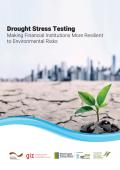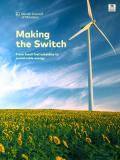
This report estimates fossil fuel subsidies to be around USD 425 billion. Such subsidies represent the large lost opportunities for governments to invest in renewable energy, energy efficiency and sustainable development. Removal of subsidies can lead to carbon emission reductions (6~8% by 2050 globally), Reductions that can be improved further with a switch or a "SWAP" towards sustainable energy.
This report describes the scale and impact of fossil fuel subsidies on sustainable development. It describes the SWAP concept to switch savings made from fossil fuel subsidy reform, towards sustainable energy, energy efficiency and safety nets. The report provides potential SWAP outlines for Bangladesh, Indonesia, Morocco and Zambia. "Making the Switch" was written for the Nordic Council Ministers by the Global Subsidies Initiative of IISD and Gaia Consulting.
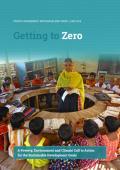
This paper builds on this new global sustainable development framework: making the case to mainstream poverty, environment — and now climate — issues into the centre of efforts to implement the SDGs, nationally Determined Contributions and other initiatives towards the 2030 agenda. the paper addresses the significant scale of linked poverty, environment and climate problems and emphasises the need for structural reforms, especially to improve inclusion.
The paper updates the context — with a stock-take on how linked poverty, environment and climate issues have been addressed together. It makes the point that poverty, environment and climate issues are highly political, being both created and sometimes resolved by business and social actors, and not only government. Yet the initiatives that have dealt with them tend to have been too technocratic and limited by current political, governance and finance rules.
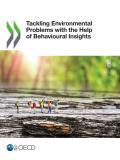
Behavioural insights can help policy makers obtain a deeper understanding of the behavioural mechanisms contributing to environmental problems, and design and implement more effective policy interventions. This report reviews recent developments in the application of behavioural insights to encourage more sustainable consumption, investment and compliance decisions by individuals and firms.
Drawing on interventions initiated by ministries and agencies responsible for environment and energy, as well as cross-government behavioural insights teams, it portrays how behavioural sciences have been integrated into the policy-making process. The report covers a variety of policy areas: energy, water and food consumption, transport and car choice, waste management and resource efficiency, compliance with environmental regulation and participation in voluntary schemes. It shows what has proven to work – and what has not – in policy practice in OECD countries and beyond.
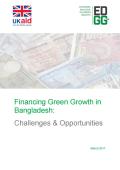
Many of the investments made in Bangladesh, especially in the manufacturing sector, have contributed to impressive growth in GDP over the last decade, but have presented the threat of locking in the country into an unsustainable development path. In Bangladesh, even though some policy alignments are evident towards achieving sustainable development goals, there are opportunities for creating an enabling environment for financial institutions, both formal and nonformal, to play a catalytic role for promoting green growth in the present and foreseeable future.
The present study reports on the different sources of green finance available in Bangladesh through grant, debt, and equity mechanisms; provides an insight into the green finance landscape in the country in general; presents the challenges financial institutions face in internalising green finance, and outlines the potential for greening growth of Bangladesh through identifying opportunities for accessing green finance from internal and external sources.
